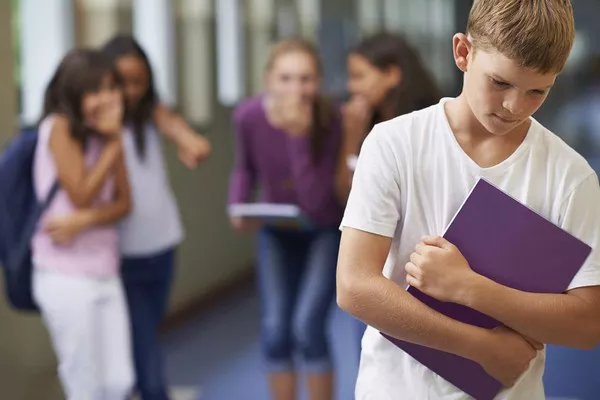In light of the many studies highlighting the benefits of mindfulness for children, researchers from the Massachusetts Institute of Technology (MIT) embarked on a study to explore the potential of remote, app-based mindfulness practices. They sought to determine if children who engaged with a mindfulness app during the COVID-19 pandemic at home could reap similar advantages. The study, carried out over 2020 and 2021, revealed that children using the mindfulness app for 40 days experienced significant improvements in various aspects of their mental health, such as reduced stress and fewer negative emotions like loneliness and fear.
These findings open the door to the potential of remote, app-based mindfulness interventions, which may provide mental health benefits to a broader spectrum of children compared to traditional school-based approaches. Professor John Gabrieli, the Grover Hermann Professor of Health Sciences and Technology at MIT, emphasized the growing scientific evidence supporting the positive impact of mindfulness on mental well-being in children and adults.
Research conducted in Gabrieli’s lab has also indicated that children with higher levels of mindfulness exhibited greater emotional resilience in the face of the COVID-19 pandemic’s negative impacts.
Pandemic Resilience Explored
As the pandemic disrupted the lives of millions of students in 2020, the researchers at Gabrieli’s lab decided to investigate the role of mindfulness in enhancing children’s resilience during these challenging times. A study published in the journal PLOS One in July delved into whether mindfulness could mitigate the negative emotions generated by the pandemic, including frustration and loneliness.
The researchers collaborated with students aged 8 to 10, assessing their mindfulness using a standardized evaluation that measured tendencies towards self-blame, rumination on negative thoughts, and the suppression of emotions. The participants also answered questions about how the pandemic affected different aspects of their lives, in addition to inquiries designed to evaluate their anxiety, depression, stress, and negative emotions like worry and fear.
Results showed that children with high levels of mindfulness displayed no significant correlation between the pandemic’s impact and negative emotions. Conversely, children with lower levels of mindfulness exhibited a strong link between the pandemic’s effects and negative emotions, indicating the potential of mindfulness in fostering emotional resilience.
The children in this study did not receive formal mindfulness training, so their responses reflected their natural tendencies regarding mindfulness. These findings underlined that children with higher levels of mindfulness were less susceptible to being entangled in negative emotions or self-blame during the pandemic.
Remote Interventions and App-Based Mindfulness
Building on this groundwork, the researchers delved further into the potential of remote, app-based interventions in increasing mindfulness and improving mental health. Their previous studies had already demonstrated the positive impacts of mindfulness training in middle school students, showing improved academic performance, fewer suspensions, and reduced stress.
For their latest study, published in Mindfulness, the researchers worked with the same children recruited for the previous research. These participants were divided into three groups, each consisting of approximately 80 students.
One group engaged in mindfulness training through an app provided by Inner Explorer, a non-profit organization known for developing school-based meditation programs. These children followed a regimen of mindfulness training five days a week, involving relaxation exercises, breathing techniques, and various forms of meditation.
The other two groups were introduced to an app for listening to audiobooks, unrelated to mindfulness. One group simply had access to the audiobook app, while the other also benefited from weekly one-on-one virtual meetings with a facilitator.
The study’s evaluation involved assessing the mindfulness levels of each participant and measuring aspects of mental health, including anxiety, stress, and depression, both at the study’s commencement and conclusion. Notably, all three groups exhibited improved mental health throughout the eight-week study, along with increased mindfulness and prosocial behavior.
Children in the mindfulness group experienced unique benefits not observed in the other groups, particularly a more substantial reduction in stress. Additionally, parents of children in the mindfulness group reported significant decreases in negative emotions such as anger and sadness. The most dedicated students, who consistently practiced mindfulness exercises, enjoyed the most substantial benefits.
Surprisingly, the study revealed no significant differences in measures of anxiety and depression between the mindfulness group and the audiobook groups. The researchers hypothesized that this outcome might be due to the beneficial impact of the facilitator’s interaction with the audiobook group participants.
The research underscores the value of app-based mindfulness training, particularly when children engage consistently and receive encouragement from parents. Moreover, apps present a scalable and cost-effective solution to reach a larger number of children compared to resource-intensive school-based programs.
Isaac Treves, lead author of the study and an MIT graduate student, highlighted the flexibility and freedom offered by app-based mindfulness training, as children can proceed at their own pace and revisit practices they find most beneficial.
The research was made possible through funding from the Chan Zuckerberg Initiative as part of the Reach Every Reader Project, along with support from the National Institutes of Health and the National Science Foundation. These findings underscore the potential of mindfulness in enhancing the mental health of children and provide a promising avenue for further exploration.




















